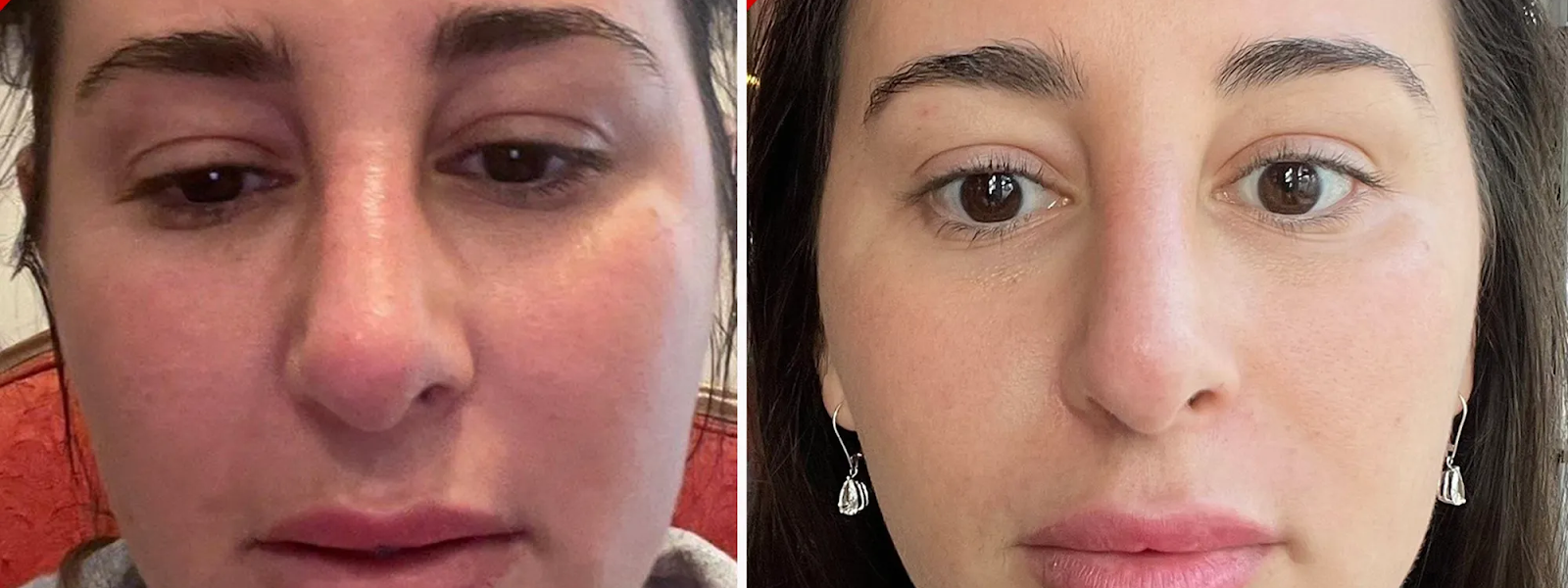The rise in popularity of GLP-1 receptor agonists like Ozempic for weight loss has led to a new cosmetic concern: “Ozempic face.” This term refers to the facial volume loss and premature aging that can occur as a result of rapid weight loss associated with these medications.
Understanding Ozempic Face
What is Ozempic Face? Ozempic face is characterized by a gaunt appearance, hollow cheeks, and sagging skin. This occurs when facial fat is lost, leading to a loss of volume and definition.
Causes: Rapid weight loss, often associated with medications like Ozempic, can lead to facial fat loss. This is because the body tends to lose fat from the face at a faster rate than other areas.
Impact on Appearance
Ozempic use can have a noticeable effect on a person’s appearance, often resulting in a more aged and fatigued look. This can be attributed to factors such as weight loss, skin elasticity changes, and potential side effects like dry skin or hair loss. These aesthetic changes can significantly impact self-esteem and confidence, leading to feelings of discomfort or dissatisfaction.
Treatment Options
Plastic surgeons have been increasingly seeing patients seeking treatments for Ozempic face. Here are some common approaches:
Facial Fillers: Injecting dermal fillers into the areas of the face that have lost volume can help restore a more youthful appearance.
Fat Grafting: This involves harvesting fat from another area of the body, such as the abdomen or thighs, and injecting it into the face to restore volume.
Facelift: For more severe cases of facial aging, a facelift may be necessary to address sagging skin and restore facial contours.
Considerations for Patients
Consult a Plastic Surgeon: If you’re concerned about Ozempic face, it’s essential to consult with a board-certified plastic surgeon to discuss your options and determine the best treatment plan for you.
Realistic Expectations: Understand that while plastic surgery can help improve your appearance, it may not completely eliminate the effects of aging or weight loss.
Recovery Time: Facial fillers and fat grafting typically involve minimal downtime, while a facelift requires a more extended recovery period.
Cost: Be aware of the costs associated with these procedures and explore financing options if needed.
Prevention Strategies
While there is no guaranteed way to prevent Ozempic face, there are steps you can take to minimize its effects:
Gradual Weight Loss: Aim for a gradual and sustainable weight loss plan to reduce the risk of rapid facial fat loss.
Skincare: Maintain good skin care habits to help improve skin elasticity and reduce the appearance of wrinkles.
Hydration: Stay hydrated to help maintain healthy skin.
Consult with a Healthcare Provider: If you’re concerned about the potential side effects of Ozempic or other weight loss medications, consult with your healthcare provider.
Conclusion
Ozempic face is a growing concern for many people who have experienced rapid weight loss. While plastic surgery can help address the aesthetic issues associated with this condition, it’s essential to consult with a qualified plastic surgeon to discuss your options and determine the best course of action. By understanding the causes and potential treatments, you can make informed decisions about your appearance and well-being.
FAQs
What is Ozempic?
Ozempic (semaglutide) is a medication originally approved for the treatment of type 2 diabetes. It works by mimicking the effects of a hormone called glucagon-like peptide-1 (GLP-1), which helps regulate blood sugar levels.
How Does Ozempic Affect Weight Loss?
Ozempic can help with weight loss by reducing appetite, slowing down digestion, and increasing feelings of fullness. These effects can lead to weight loss, which may also result in changes to facial appearance.
Can Plastic Surgeons Help with Ozempic-Related Facial Changes?
While Ozempic can lead to weight loss and facial changes, plastic surgeons can help address any aesthetic concerns that may arise. This can include:
Excess skin: Weight loss can result in excess skin, particularly in the face and neck. Plastic surgeons can perform procedures like facelifts, neck lifts, or blepharoplasty (eyelid surgery) to address this issue.
Volume loss: Weight loss can also lead to volume loss in the face, resulting in a gaunt or sunken appearance. Plastic surgeons can use fillers or fat transfer to restore volume and improve facial contours.
Jawline definition: Ozempic-related weight loss can sometimes enhance jawline definition. However, if you’re not satisfied with the results, plastic surgeons can perform procedures like jawline contouring or liposuction to achieve your desired look.
What Procedures Can Plastic Surgeons Perform to Address Ozempic-Related Facial Changes?
Facelift: A facelift can address sagging skin and wrinkles in the face and neck.
Neck lift: A neck lift can improve the appearance of a sagging neck.
Blepharoplasty: Blepharoplasty can correct drooping eyelids.
Fillers: Fillers can be used to restore volume and improve facial contours.
Fat transfer: Fat can be harvested from another area of the body and transferred to the face to restore volume and improve facial contours.
Jawline contouring: This procedure can help define the jawline and create a more sculpted appearance.
Liposuction: Liposuction can be used to remove excess fat from the face or neck.
What Should I Consider Before Undergoing Plastic Surgery?
Consult with a qualified plastic surgeon: It’s essential to consult with a board-certified plastic surgeon who specializes in facial procedures.
Discuss your goals: Clearly communicate your desired outcomes and expectations with your surgeon.
Understand the risks and benefits: Be aware of the potential risks and benefits associated with the procedure.
Consider the cost: Plastic surgery can be expensive, so it’s important to factor in the cost and insurance coverage.
Is Ozempic a Permanent Solution for Weight Loss?
Ozempic is not a permanent solution for weight loss. If you stop taking it, you may regain some or all of the weight you lost. It’s important to consult with your healthcare provider to discuss long-term weight management strategies.
Remember, it’s crucial to consult with a qualified plastic surgeon to determine the best approach for your individual needs and goals.
Would you like to know more about the risks and benefits of specific procedures or have other questions about plastic surgery and Ozempic?
To read more, Click Here.




